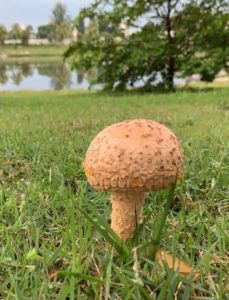 Dear Integral Meditators,
Dear Integral Meditators,
I’ve started a series of 45 second mindfulness videos, which I post on Instagram, LinkedIn, or Facebook, so you can follow them on any of these platforms! I’ve also placed a links to the existing videos below for you to view.
As the lock-down and interruption to our previous world-order continues, I thought it might be useful to revisit my previous article on ‘Life-fullness’ that I’m also placing below.
A quick reminder of this weeks Full Moon and Wesak meditations!
In the spirit of life-fullness,
Toby
Article: Life-fullness
One of the words that I have been thinking about over the last six months or so is life-fullness. It has become so significant to me that I’ve even decided to name my life coaching program after it. What does it mean? Here are a few things that it means to me:
- To feel full of life – To feel life full means to allow myself to feel life fully, both the good and ‘bad’, to feel my strength and vulnerability, my virtues and your flaws. It means to care enough about the value of my experiences that I don’t reject or turn away from any of them.
- To mediate life flow – It means to allow life-force to flow through me, obstructing it as little as possible, and directing it as skillfully as possible toward the best possible inner and outer goals…read full article
45 seconds to mindfulness videos, posted so far!:
(All videos have been posted to all the three below platforms)
On Instagram:
How can you travel whilst staying at home?
Mindful tip for the day: Don’t try too hard!
45 second mindfulness for the day: Awareness of your shoulders
On LinkedIn:
45 seconds to becoming a more caring person
45 seconds to greater inner resilience…
45 second mindfulness: Build a conscious relationship to the future!
45 second mindfulness: Keep your centre of gravity low!
On Facebook:
45 seconds to mindful courage
45 second mindfulness: Accepting what you can’t change
Life-Fullness – The Integral Life-Coaching Program
Are you looking a coach who can help you to:
- Meet the challenges, stress and changes that you face in a more effective and mindful way
- Become happier within yourself, in your relationships and at work
- Be actively accountable for finding a sense of balance/well-being in your life and fulfilling your personal potential?
- Guide you to find and operate from a deeper sense of meaning, motivation and connectivity in your life?
- Develop the long term confidence, self-belief and practical skills needed to create a life based around your personal creative power and inner motivations?
 Sundays 6-6.50pm – Qi gong energy body activation meditation (Livestream)
Sundays 6-6.50pm – Qi gong energy body activation meditation (Livestream)
These are Qi gong meditation sessions to activate and enhance the flow of ‘qi’ or subtle energy in your body. We will then be using this flow for:
- Enhancing physical health and healing
- Increased emotional wellbeing and mental balance
- Access to deeper, more dynamic meditation states to transform and regenerate your body, mind and soul…Full details of session
 Tues 5th & Weds May 6th – Online Full Moon Meditation & Manifestation Session
Tues 5th & Weds May 6th – Online Full Moon Meditation & Manifestation Session
This meditation, done on or around the full moon capitalises on the heightened lunar energies at this time of the month to:
- Bring energy and health to our physical body
- Increase benevolent, life affirming emotions such as appreciation, joy and gratitude
- Release patterns of energy, thinking and feeling that are no longer serving us
- Focus on clarifying our intentions and manifesting our current life-goals
 Thursday 7th May, 6.30-7.30pm – Wesak Meditation on Compassion
Thursday 7th May, 6.30-7.30pm – Wesak Meditation on Compassion
Toby will be leading a meditation to help you to:
- Find a place of coolness, peace and stability amidst the turbulence of your own life.
- Connect to the energy of compassion.
- Connect to your own deeper intention to work for the greater good.
- Connect to the ‘Community of Bodhisattvas’, those indomitable beings who work continuously for the wellbeing of the world
 Re-starts Sunday 10th May – Qi gong workout class
Re-starts Sunday 10th May – Qi gong workout class
This is a Qi gong session that begins with movement, breathing and energy work to thoroughly energize and refresh your body, nervous system and energy meridians and regenerate your physical, energetic, mental and spiritual being.
 Saturday 16th May, 4-6pm – Mindful Envisioning – A meditation, visualization & imagining masterclass
Saturday 16th May, 4-6pm – Mindful Envisioning – A meditation, visualization & imagining masterclass
A picture speaks a thousand words! Learn how to build powerful meditation states through your imagination and visualization that can be put to many practical uses…
Read more about the workshop
 Saturday 31st May, 2-5.30pm – Wabi-Sabi mindfulness – The art of creative leadership and self-leadership, A Livestream workshop
Saturday 31st May, 2-5.30pm – Wabi-Sabi mindfulness – The art of creative leadership and self-leadership, A Livestream workshop
In a sentence: Learn how to work creatively with uncertainty, imperfection and life’s inherent messiness to realize your leadership and self-leadership potential. Manage stress and anxiety better using mindfulness in combination with the practical philosophy of Wabi-Sabi.
Full details of the workshop
 Online Integral Meditation & Mindfulness classes
Online Integral Meditation & Mindfulness classes
Build focus, beat stress, cultivate wellbeing!
Each session involves simple practices that you can apply to make a real difference to your wellbeing and effectiveness in life…full details of classes
All upcoming classes and workshops for at IMA:
Ongoing on Wednesday’s, 7.30-8.30pm – Wednesday Meditation for stress transformation and positive energy with Toby (Bukit Timah)
Ongoing on Tuesday evenings, 7.30-8.30pm – Tuesday Meditation for stress transformation and positive energy with Toby (East Coast)
Ongoing Sundays 6-6.50pm – Qi gong energy body activation meditation (Livestream)
Tues 5th & Weds May 6th, 7.30-8.30pm – Online Full Moon Meditation & Manifestation Session
Thursday 7th May, 6.30-7.30pm – Online Wesak Meditation on Compassion
Saturday 16th May, 4-6pm – Mindful Envisioning – A meditation, visualization & imagining masterclass
Saturday 16th May 10.30am-12noon – ONLINE Get your meditation practice started now – The shortest & most time effective meditation course ever
Saturday 31st May, 2-5.30pm – Wabi-Sabi mindfulness – The art of creative leadership and self-leadership, A Livestream workshop
Online Courses * 1:1 Coaching * Books * Live Workshops * Corporate Mindfulness Training *Life-Coaching * Meditation Technology











